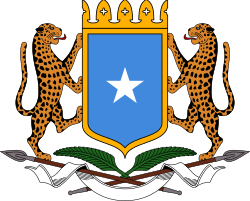SOMALIA JOINT MONITORING REPORT 4
Biannual update on food and nutrition security crisis risks December 2025 – REPORT #4
This Joint Monitoring Report (JMR) for Somalia, which uses data up to November 2025 and statistical modelling to highlight food and nutrition security risks at the district level, recorded 41 critical and 61 heightened risk alerts in November compared to 31 critical and 68 heightened risk alerts recorded in October last year. It is estimated that 1,729,000 people (9.07% of the population) lived in areas at risk of experiencing Emergency (IPC Phase 4) or worse food insecurity conditions across several regions.
The five regions with districts at the highest risk of experiencing food and nutrition security deterioration, in order of severity from highest to lowest, are Lower Shabelle, Gedo, Bay, Sanaag, and Lower Juba. The top 10 districts at risk are Qoryooley, Wanla Weyn, Doolow, Buurhakaba, Ceerigaabo, Baydhabo, Diinsoor, Afgooye, Adan Yabaal and Baardheere.
SOMALIA JOINT MONITORING REPORT 4 Read More »
